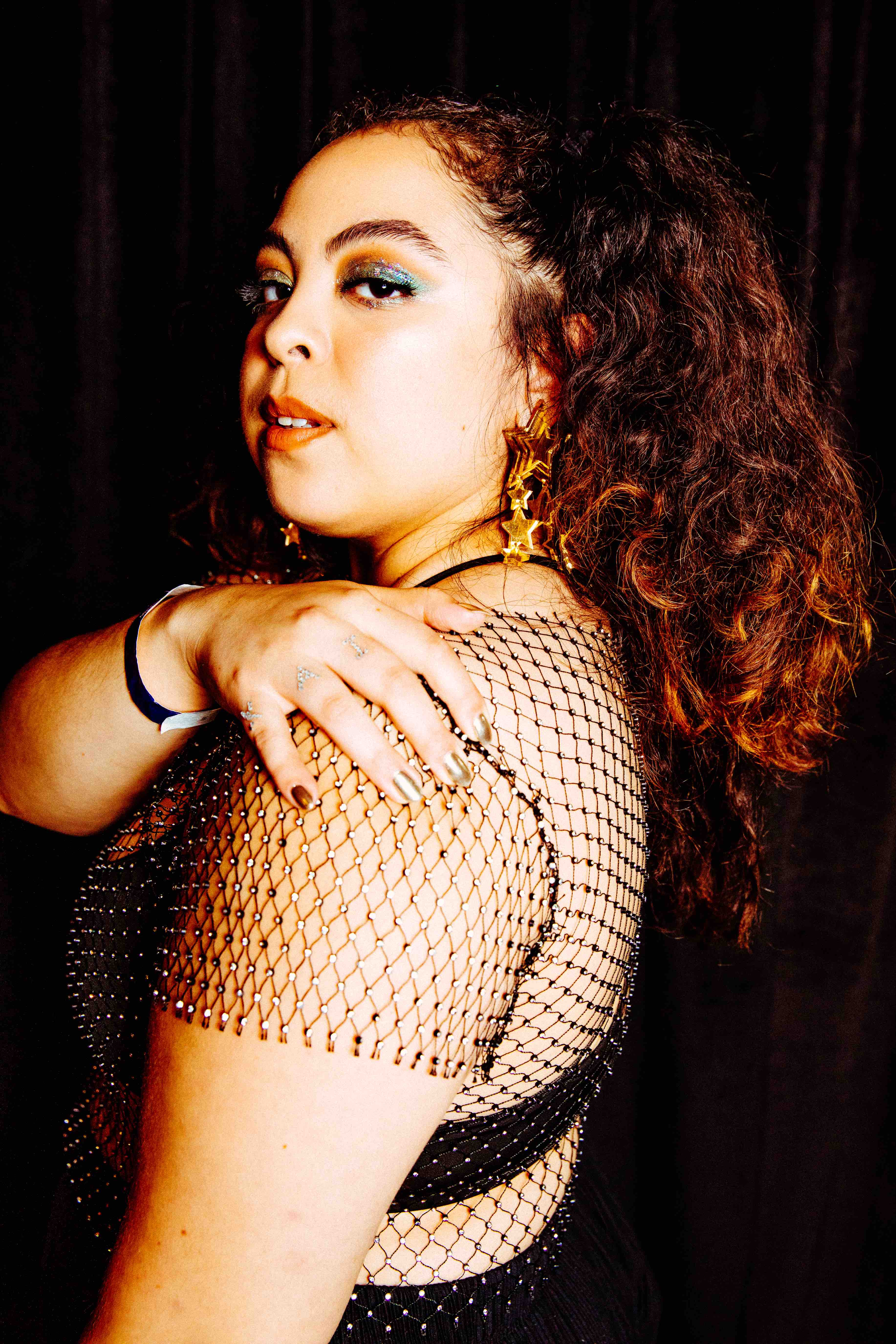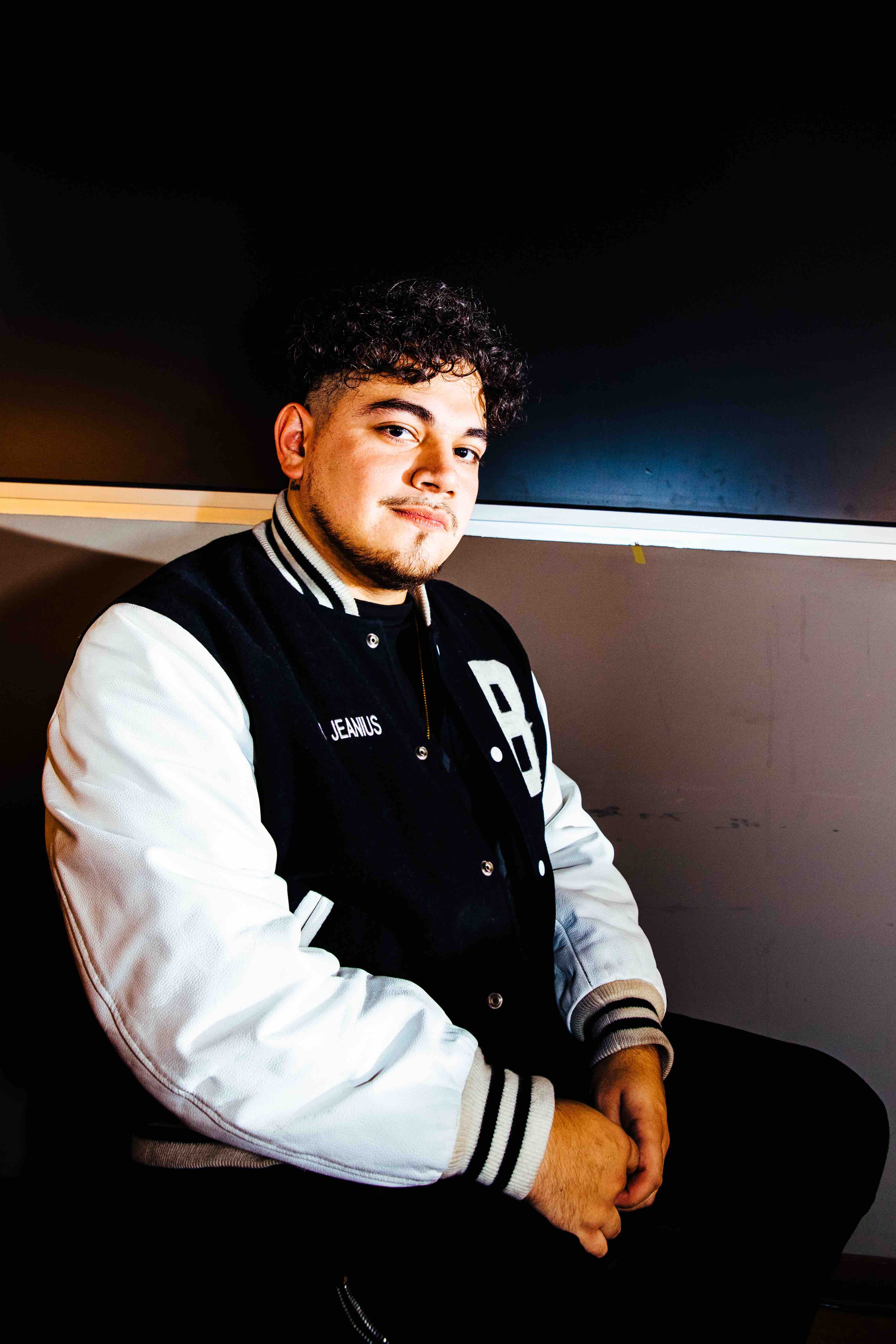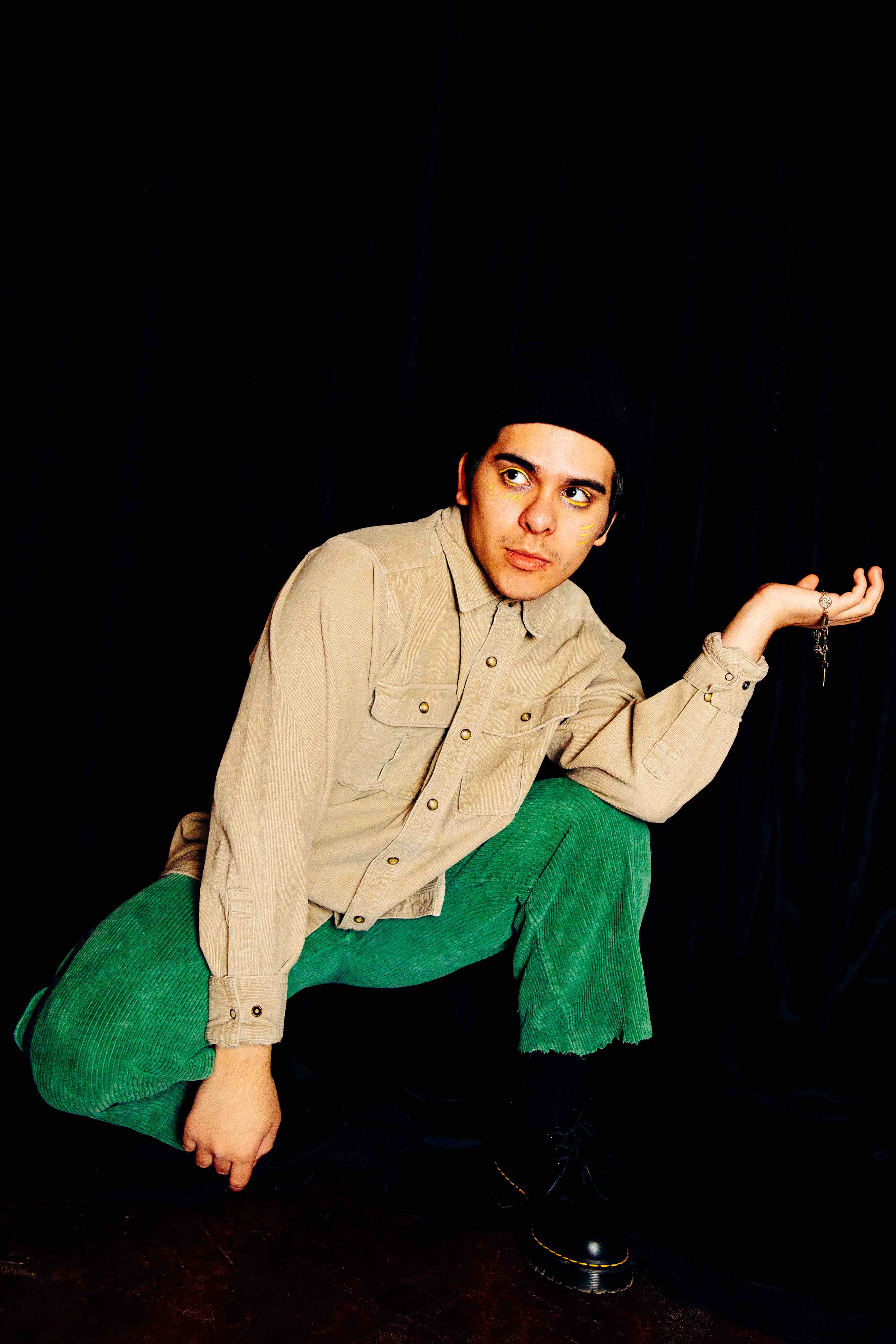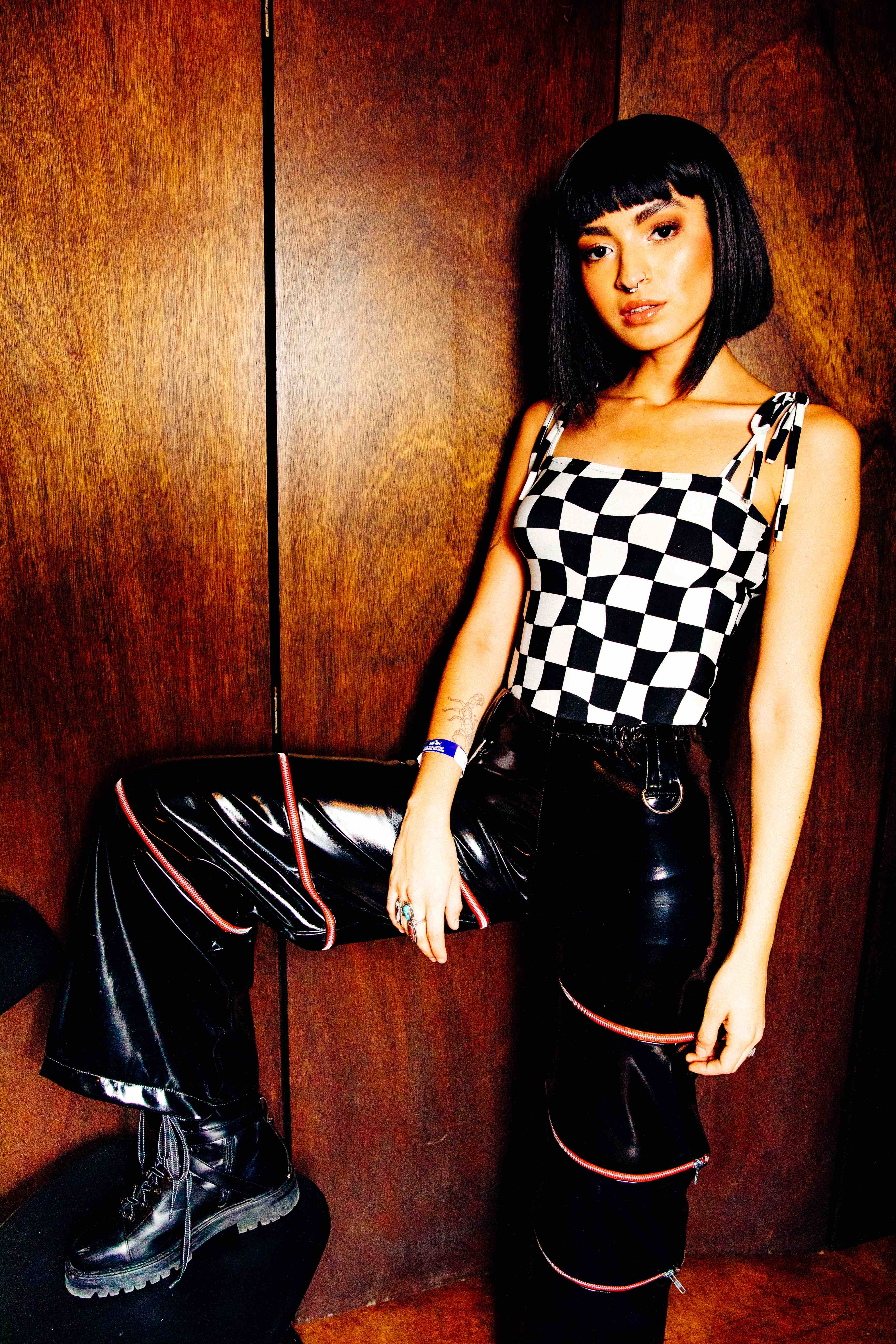In Chicago, Latinx musicians are starting a new movement. Long hindered by the corrosive effects of redlining, segregation, and gentrification, a new generation of Latinx creators and musicians have emerged across the city, ready to forge a space to flourish in the changing landscape of their neighborhoods. The city’s Latinx music community is longstanding and steadfast, with pioneers like CumbiaSazo paving the way for the next wave of party promoters and artists who are creating something new.
That’s what was on display during Red Bull Music Fest’s Xicago, an all-ages, two-stage festival that took over Saffron Rails, a reconverted warehouse on Goose Island in early November. The event was billed as a celebration of the city’s rich and diverse Latinx communities, showcasing the depth of talent that’s bubbling up across the city. Though our community and cultures are often treated as monolithic, the fact is that we remain defined by difference. Luckily, the event’s eclectic curation showed a commitment to recognizing all kinds of Latinx performance, regardless of genre or age. Kaina’s ghostly R&B found an easy home next to Tatiana Hazel’s avant pop, while the explosive, genre-hopping set of the city’s beloved Pachanga crew was a welcome complement to DJ Boi Jeanius’s hip-hop focused set.
Regardless of style and neighborhood, a sense of unity and energy permeated the space on Sunday night, providing a sense of necessary cultural affirmation.
We talked to four of the Chicago-raised artists who played the show about local politics and the future of the city’s Latinx music scenes. Check out what they had to say below.
Kaina, 22, Irving Park

“Latinx artists are absolutely having a moment [in Chicago]. I’m really inspired by my peers. I totally think we’re having a moment, but I feel a lot of ways about that. I feel excited but I also feel like it’s kind of trendy. We’ve always been here. I’ve always been Latina. And now it’s just cool. It presents certain insecurities. This country already didn’t want me to be who I was, but now it’s trendy and that’s confusing.
When I was younger, I started playing a bunch of women’s showcases and at first that was cool, to have people start thinking, “Oh we’re not incorporating enough women into our bill,” or “Oh let’s just do an all-women night.” But then it got really cliché and trendy. The point is to have women/femme-identifying people on your bill so that you’re diversifying and not tokenizing.
I hope it doesn’t get to the place with Latinx music and cultures where it’s like, “Well we’re just gonna book you because you’re this.” It should be more like, “We’re not being diverse here.” It should just be that you’re a musician who happens to be Latinx. We see people like us on stage and being cared about and we don’t have to hide that anymore.
There’s so many communities in Chicago of Latinx folks, but my personal issue is that I [try to] know my privileges and I know the way that I am not privileged. There are a lot of questions I need to ask myself and things I need to hold myself accountable for. Even the difference the color of skin. [I want to] create and create really genuinely and also be there for my community. And be an ally to the folks who sometimes have it harder than me.
I wanna get to know the people who have been doing work for a long time. The world that we live in doesn’t prioritize that and so you lose communities, you lose people you should probably be in touch with. [I ask myself] where and how are the ways that I’ve lost my people? Where and how do I need to be educating myself?”
DJ Boi Jeanius, 29, Pilsen

“As a community here in Chicago, to watch big names now move differently and in an independent role, it’s like, we have the power now. New York has to be New York. LA has to be LA. and we don’t have to be anything but Chicago. We don’t have to deal with the pressures of the coasts. We allow them to control our narrative. The more independent we become as artists, [the better]. I’m watching so many people on the stage [tonight] they’re learning how to stand on their own and control their own narrative.
In Chicago, everything is so divided. It’s so segregated. Tonight’s a big deal for Chicago artists because us as [Latinos], it’s the first time I’ve seen a sponsor like Red Bull put on an event specifically for independent Chicago Latinos. Some people on this stage haven’t really been doing this that long so I don’t know if they can grasp how major this is, but I can look back in the history and realize, “Yo this, is what we’ve been looking for.” We need a pedestal to stand on.
I live in Pilsen; I’ve been living there for the past five years. When I first moved in, there wasn’t this big rush of – “Everybody get out.” There was still a beauty salon across the street. There was a barbershop on the corner. None of that’s there anymore. They’re putting prison cells in our neighborhood, but we’re colorful. We have to protect ourselves and educate ourselves.”
VICTOR!, 18, Wicker Park

“There’s definitely a lot of unity going on. It feels very much like family. The fact that we got our own Red Bull show going on, that’s pretty big. I think that’s us breaking the bridge and getting inside the mainstream. We’re infiltrating the scene now.
With gentrification going on, especially where we’re from, we start to question our identity a lot. Identity issues come up – am I being too white? Am I being too Mexican? There’s that clash in your head. You’re just like, ‘Damn what am I wearing? How am I supposed to act?’
I really want to start volunteering and programs [to help] kids who are trying to make art and music. Eventually I would like to open up my own space where I have free resources. It’d be cool to open up a space where kids like me [who] grew up very poor can have access to anything they need.”
Tatiana Hazel, 22, Logan Square

“There were people doing stuff independently, but now we all know about each other. Even if we don’t collaborate, we’re supportive. We’ll be at each other’s shows and we’re friends. I don’t even know where a lot of my fellow musicians live – it’s an internet thing. Even if we don’t see each other often, we know of each other because we’ll be reposting each other’s stuff.
Even with this Red Bull show, Red Bull’s never had a platform like that for Latinx artists. The more recognition, the more of us there are. You put together a show like this and it can sell out because there’s an audience for it. With the growth of the Latinx scene comes the growth of opportunities.
[Deportation] is happening all the time. That’s happening with local businesses, and you find out that on the way to go to their car [people] get raided. I feel like everybody knows someone who’s been affected by that. It’s definitely an issue in the city right now.
The issue before with Latinx music is that it’d be pigeonholed into one thing and wasn’t crossing over into the mainstream. Now that it’s starting to do that, I want to see that continue to blossom. It can be a Latinx show but the audience is all types of people.”
These interviews have been edited and condensed for clarity.







